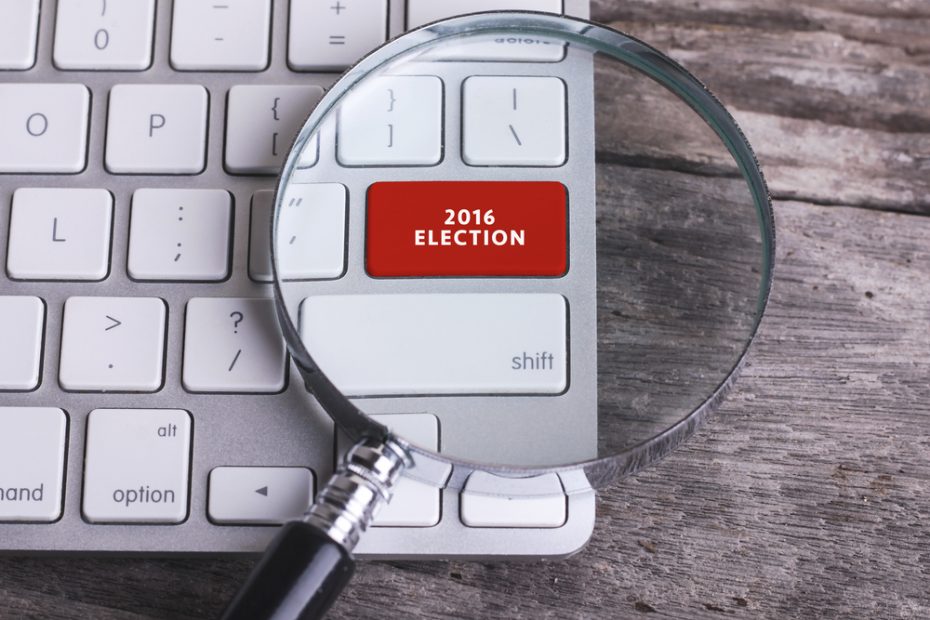In the lead up to a presidential election, small business owners often face challenges that are critical to the sustainability and growth of their companies, post-election. Current economic and regulatory standards can affect taxes, credit requirements, healthcare, and countless other aspects of government that can have a direct impact on how you operate your business. Each of the major parties are proposing their own unique solutions to these challenges. If you’re not already educated on each party’s platform, continue reading to find out how they plan to help your business thrive over the next four years.
Democratic platform
Democratic nominee Hilary Clinton’s small business plan focuses on several key issues. Hillary recognizes small businesses generate almost two-thirds of new American jobs, but that small businesses were also hurt by 2008’s recession, leading to a lag in the formation and growth of new business.
As her plan reports:
• New business formation has fallen 15% since 2007.
• Small businesses owners cite insufficient access to capital as a primary inhibitor to starting, growing, and sustaining a small business.
• Small business loans comprised just 29% of total bank loans in 2012, as compared with 51% in 1995.
The Democratic Party’s solutions to these problems include the following proposals:
Start-up and profitability
• Provide incentives to states willing to make starting a business cheaper and easier
• Provide federal funding to support new programs and offset lost licensing revenue
Financing and credit
• Ease lending rules for community banks and credit unions
• Support online lending platforms while safeguarding against unfair lending practices
• Find innovative ways to assess creditworthiness for small business owners
Taxes
• Create a new standard deduction for small businesses as an alternative to the current need to track and file each individual expense
• Allow small businesses with gross receipts under $1 million to take advantage of “check book accounting,” eliminating much of today’s record keeping requirements
• Double tax write-offs for small business investments in things like expansion or equipment purchases from $500,000 to $1 million
• Increase the start-up tax deduction from $5,000 to $20,000 to lower the cost of business start-up
Healthcare
• Simplify and expand the healthcare tax credit for small employers in the Affordable Care Act, so that employers with up to 50 staff would be eligible.
Republican Platform
Republican presidential nominee Donald Trump’s plan to help small businesses identifies several challenges, including job losses due to free trade deals, unemployment, low wages, complicated and high taxes, as well as slow GDP growth.
As the platform points out:
• 23.7 million Americans in their prime-earning years (ages 25-54) are out of the labor force – an increase of 1.8 million over the last seven years
• Real GDP grew only 1.1% in the second quarter of this year. Over the last seven years, real GDP grew 2.1% the slowest seven-year period since at least the 1940s
• Hourly earnings and weakly earnings are lower today than they were in 1973
The Republican Party’s proposed solutions include:
Regulation
• New negotiations of free-trade agreements (NAFTA and TPP) to reduce the number of jobs lost to countries with lower labor costs
• A potential increase in the minimum wage
• Reduce EPA enforcement powers to offset regulations that may be harmful to business growth
Taxes
• Cut the federal corporate tax rate for companies of all sizes from 35% to 15%
• Simplify the tax code by reducing the number of tax brackets from seven to three
• Cut capital gains taxes to a maximum rate of 20%
Healthcare
• Replace the Affordable Care Act with a new system that allows a free market for private health insurers
• Eliminate mandatory insurance for business owners
• Make health insurance costs tax deductible
• Allow healthcare to be purchased across state lines
Libertarian platform
Libertarian presidential nominee Gary Johnson’s plan for small business reflects the party’s core belief that many small business challenges are caused by government intervention and regulation. Government influence on wages, prices, rents, etc. are central issues; as are government oversight of healthcare, and government erected barriers to free trade.
Proposed Libertarian Party solutions include:
Taxes
• Eliminate income and corporate tax, and replace them with one federal consumption tax
• Eliminate the IRS
• Implement the FairTax, which would tax goods and services at a flat 23%
Healthcare
• Delegate Medicaid and Medicare to the states
• Eliminate the Affordable Care Act. Create a free market, pay-as-you-go health care system. It would not cover ongoing health care, but focus on covering catastrophic events and illness
Regulation
• Eliminate government regulation of trade and the economy—including: minimum wage and energy regulation
• Support all free trade agreements (including TPP and NAFTA)
Although each party is approaching individual business challenges differently, all three parties have identified common issues affecting small business and have plans to improve the climate for both new and existing business owners.
It’s important that you consider the impact to business when you vote on November 8th.


